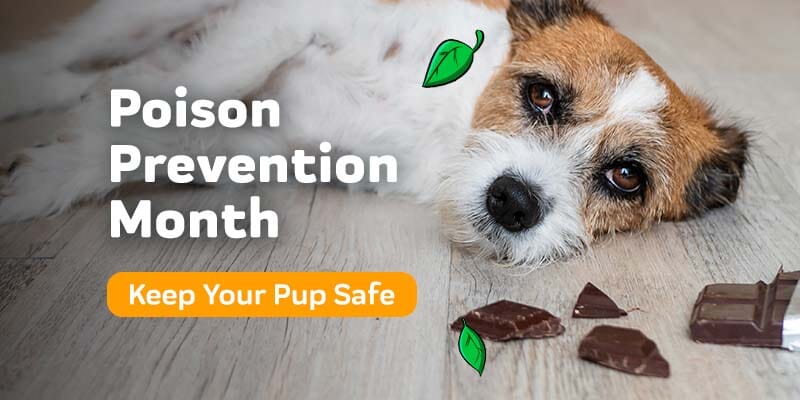Source: Kritter Klub
- Importance of Sleep for Dogs
- Insomnia In Dogs
- Sleep Apnea In Dogs
- Narcolepsy In Dogs
- Others Causes for Lack of Sleep
- Breeds with Increased Risk of Sleep Disorders
- Natural Alternatives for Sleep Disorders

Importance of Sleep for Dogs
You’ve probably watched your dog lying around the house on more than one lazy afternoon and thought “life must be good.” Dogs love to sleep. In fact, napping is naturally a major part of every dog’s day; they sleep 12 to 14 hours a day, according to PetMD. And if they don’t get a sufficient amount of sleep, their health can be adversely affected just like our own when we’re sleep deprived.
"Dogs with sleep disorders might whine, cry, or frequently wake up during the night, become more sluggish during the day, or seem more disoriented when performing normal tasks," says Dr. JoAnna Pendergrass.
But the long term, big picture consequences of sleep deprivation for dogs is much greater and potentially much more harmful than just that. "Because sleep deprivation can cause a buildup of stress hormones, dogs with sleep disorders may also become more
Insomnia In Dogs
Dogs can suffer from insomnia, just like humans, and they can also often be impacted by other sleep disorders with symptoms and signs that may seem normal to you at times. For example, when dogs struggle with what’s known as REM Behavior Disorder, they will routinely continue physical activity during sleep.
We often associate this squirming or grumbling or even miming a run while laying down as them being very involved in a dream, maybe just chasing rabbits and squirrels, you’d think.
However, there are instances when dogs can experience this more often than not and the

Sleep Apnea In Dogs
And if your dogs snores exceptionally loud, they may be struggling with sleep apnea. Whereas the other conditions can be the result of physical injuries or mental health problems, sleep apnea is a major problem related to a dog’s breathing while asleep.
Overweight dogs or dogs with flat faces are most often impacted by this, usually wrestling with enough interrupted sleep that they’re unable to maintain or even reach restorative phases of sleep.
This can impact everything from energy levels the next day to brain development in the long term, so it’s certainly a potentially severe enough problem that any dog struggling with this should be taken to the vet for medical help.
"While,
Narcolepsy In Dogs
Even narcolepsy - another sleep disorder many people can be adversely affected by - can impact canines.
And again, the symptoms may seem like just typical dog behavior from time to time, coming home after playing outside at the park or going on a run — any kind of excessive physical activity you might use to tire your pup out for the day — and suddenly they collapse in exhaustion and immediately fall asleep. Mission accomplished, right?
This is something we often want from our dogs, but as Dr. Pendergrass explains, it can actually be the result of a genetic condition which is triggered by excessive activity and excitement like eating, playing, greeting family members, and so on.
"The muscles will become slack and the dog will appear to be in a deep sleep with rapid eye movement (REM sleep).
External stimulation, like loud noise or petting, will abruptly wake up the dog.” But thankfully, Pendergrass also points out that narcolepsy isn’t exceptionally harmful to dogs with this condition.
To the contrary, though, something like insomnia can be extremely harmful to any dog. It is considered to be rare in dogs but the condition can be a sign of underlying health conditions

Others Causes for Lack of Sleep
Sometimes they suffer from extreme stress, anxiety, existing physical injuries, digestion problems, pain from arthritis inflammation, and even depression that can keep them from getting quality sleep at night, just like humans.
And dogs who have a hard time sleeping at night in their later years can also be found pacing around the house rather than resting, which is sometimes a sign that he or she is developing dementia.
While dementia is not a sleep disorder itself, it can negatively affect sleep and over time have a negative domino effect on overall physical health.
Sleep apnea, insomnia, narcolepsy, and REM Behavior Disorder and Periodic Limb Movement Disorder are considered the most common sleep disorders that dogs can be impacted by.
Some of these conditions are a result of lifestyle, which of course you as the owner can do your best to steer clear of. Some of these disorders and illnesses can be dictated
Breeds with Increased Risk of Sleep Disorders
English Bulldogs, Dachshunds, Poodles, Doberman Pinschers, Beagles, Labrador Retrievers are all known to have an increased risk of sleep disorders for varying reasons

Natural Alternatives for Sleep Disorders
So how do we manage these problems? Some vets will prescribe sleep aids, while many owners may choose to steer clear of medicating their dogs and instead opt for natural sleep remedies like CBD products.
Diet and exercise are always going to be top recommendations for tackling any kind of sleep disorder, as those will at least increase the baseline health of your pet and set their body up best for handling potential health complications.
















